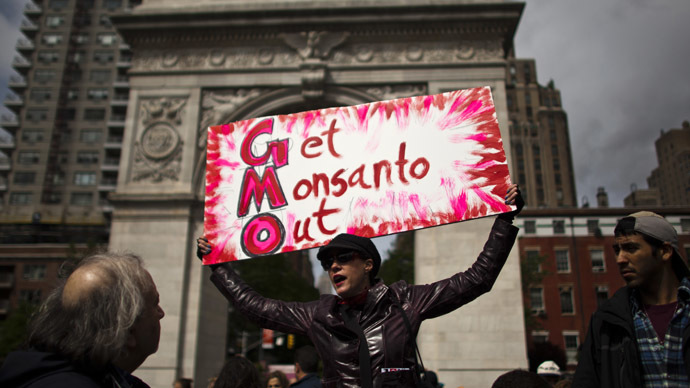Opponents score a victory in Senate against ‘Monsanto Protection Act’

In its short-term government-funding bill, the US Senate will propose an end to a budget provision that protects genetically-modified seeds from litigation despite possible health risks.
Called “The Monsanto Protection Act” by opponents, the
budget rider shields biotech behemoths like Monsanto, Cargill and
others from the threat of lawsuits and bars federal courts from
intervening to force an end to the sale of a GMO
(genetically-modified organism) even if the
genetically-engineered product causes damaging health effects.
The US House of Representatives approved a three-month extension to the rider in their own
short-term FY14 Continuing Resolution spending bill, which was
approved last week by the lower chamber.
The Senate version of the legislation will make clear the
provision expires on Sept. 30, the end of the current fiscal
year.
“That provision will be gone,” Sen. Mark Pryor (D-Ark.)
told Politico.
Pryor chairs the Senate subcommittee on agriculture
appropriations.
The Center for Food Safety said the Senate’s eradication of the
rider was “a major victory for the food movement” and a
“sea change in a political climate that all too often allows
corporate earmarks to slide through must-pass legislation.”
“Short-term appropriations bills are not an excuse for
Congress to grandfather in bad policy,” said Colin O’Neil,
the Center for Food Safety’s director of government affairs.
The biotech rider first made news in March when it was a last-minute addition to the
successfully-passed House Agriculture Appropriations Bill for
2013, a short-term funding bill that was approved to avoid a
federal government shutdown.
Following the original vote in March, President Barack Obama
signed the provision into law as part of
larger legislation to avoid a government shutdown. Rallies took place worldwide in May protesting the
clandestine effort to protect the powerful companies from
judicial scrutiny.
Largely as a result of prior lawsuits, the US Department of
Agriculture (USDA) is required to complete environmental impact
statements (EIS) to assess risk prior to both the planting and
sale of GMO crops. The extent and effectiveness to which the USDA
exercises this rule is in itself a source of serious dispute.
The reviews have been the focus of heated debate between food
safety advocacy groups and the biotech industry in the past. In
December of 2009, for example, Food Democracy Now collected
signatures during the EIS commenting period in a bid to prevent
the approval of Monsanto’s GMO alfalfa, which many feared would
contaminate organic feed used by dairy farmers; it was approved
regardless.
The biotech rider “could override any court-mandated caution
and could instead allow continued planting. Further, it
forces USDA to approve permits for such continued planting
immediately, putting industry completely in charge by allowing
for a ‘back door approval’ mechanism,” the Center for Food
Safety said earlier this month upon news the House was reviving
the measure.














